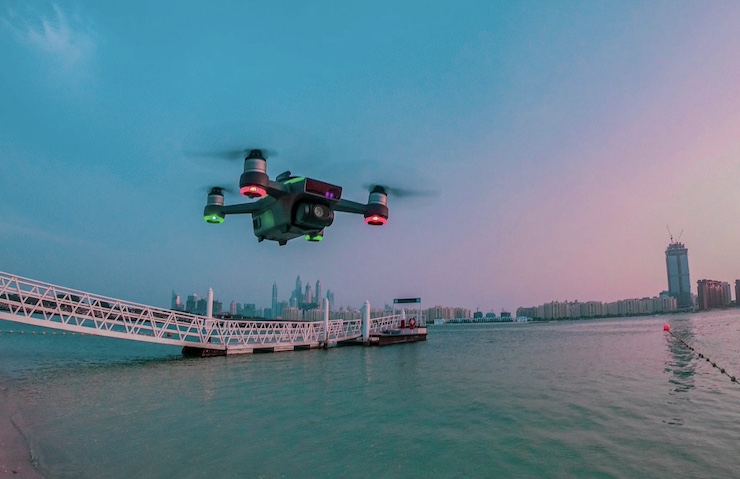
Building a drone assembly plant is the clearest sign a drone company can give that it’s preparing for full-scale commercialization. Many drone firms have received some degree of airworthiness certification from the FAA, but without formal agency approval for a specific production design – a “type certification” – they cannot begin manufacturing a drone for actual sale and use by consumers.
In recent weeks, at least two drone companies have begun moving toward assembling a drone aircraft in anticipation of taking it to market in 2024 – in some cases, ahead of their original schedule.
Germany-based Lilium, a pioneer in the burgeoning drone taxi sector, announced this week that the fuselage of its state-of-the-art drone jet will be matched with the plane’s canard and wings on the assembly line of the company’s production plant located in the town of Wessling.
The long-awaited beginning of Lilium’s plant production comes just days after the company received certification from EASA – Europe’s version of the FAA – that it had achieved the necessary organization, resources and competencies to certify its aircraft as safe and effective according to the agency’s rigorous technical standards.
Currently, no other Europe-based drone company has achieved this advanced level of certification, giving Lilium a leg up over its leading rivals. According to Lilium’s internal estimates, some 9,200 eVTOL air taxis will be needed to fulfill consumer demand by the end of 2030.
Another German-based drone company Volocopter has also received EASA design certification but has not yet begun producing any of its three main drone prototypes. Boeing and Airbus have also announced plans to introduce their own air taxis into the European market by 2025.
Paradoxically, Lilium has been struggling to maintain its financial stability despite having raised significant amounts of investment capital since 2021. But the company was buoyed recently by the establishment of a “strategic partnership” with the Lufthansa Group, a pioneer in sustainable commercial aviation, that will help Lilium to develop relationships with European airports and produce the necessary ground infrastructure and maintenance services to expand its sales throughout the continent.
News of the company’s new partnership with Lufthansa caused the value of Lilium stock to soar by nearly 20% virtually overnight. With the Wessling assembly line rolling next week, the first seven Lilium Jets will be ready for inspection by the beginning of next year, officials say.
Meanwhile, Santa Cruz, CA-based Joby Aviation, which received its final FAA certification over the summer, is debating where to establish its own new air taxi manufacturing plant. Officials in Ohio, the birthplace of US aviation, are seeking to woo the company with offers of a $1 million subsidy to locate its new drone factory near the Dayton International Airport. Joby, like other US-based air taxi firms, is anxious to offer its new aircraft as a passenger shuttle as a first stage toward broader urban passenger use. Dayton is one of several US cities anxious to showcase air taxis as part of its new sustainable transportation development plans.
Lilium clearly has a leg up on the rest of the drone competition. While Joby’s production plant is fully designed and financed, the company is unlikely to begin final assembly of its drone aircraft until 2025, officials say. Lilium is also the only drone company anywhere in the world that has sought and achieved dual certification from both EASA and the FAA, which will allow it to sell the Lilium Jet to customers on both sides of the Atlantic.
In addition, unlike the smaller air taxis produced by companies like Joby and Archer Aviation, the Lilium Jet is a five-seater that combines jet propulsion with rotary power. Its multiple small propellers drive electric motors to provide lift during takeoff and landing, while supporting thrust during the cruise phase.
The Jet can travel almost 200 miles on a single charge — the equivalent of a flight from London to Manchester – compared to 60-100 miles for Archer Aviation’s Midnight taxi.
China-based EHang is the only other drone taxi company that has reached the stage of type certification to allow for eventual full-scale production of its EH-216 prototype. EHang has already piloted use of the EH-216 for aerial tourism in China but eventually plans to mass produce the aircraft for more widespread urban commuter use. No word yet from the company on where it plans to begin building the EH-216 at scale.
|